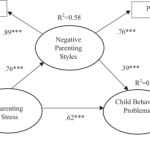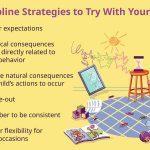Table of contents
How to Make Connections between Positive Parenting and Mental Health
Good parenting practices can have a big impact on a child’s mental health, even in the long run. Studies have shown that parental nurturing, discipline and communication all have a positive effect on a child’s mental health. As a parent, understanding the connection between your child’s behavior and their mental health can help you provide better guidance and a more supportive environment for your child.
What It Means to Be A Positive Parent
Positive parenting means setting consistent boundaries, understanding and respecting the needs of your child, and offering both emotional support and protection when needed. It also means rewarding your child for good behavior, teaching positive life skills, being patient, and displaying healthy communication.
In short, positive parenting means providing a safe, secure, and loving environment that encourages exploration and learning throughout your child’s development.
How Positive Parenting Affects Mental Health
Positive parenting can lead to better mental health development in children. Studies have shown that parental acceptance, encouragement and encouragement, communication, and discipline can help children better regulate their emotions and navigate their social environment with confidence.
Having a supportive parental figure during childhood can reduce feelings of anxiety and depression in adulthood. Positive parenting can also help a child develop healthier self-esteem and form relationships more easily, both of which are important for a child’s overall mental health.
Tips for Nurturing Positive Mental Health Through Parenting
- Provide consistent and firm boundaries and discipline.
- Listen to your child and allow them to express their feelings.
- Encourage healthy social relationships through shared activities.
- Be a role model — practice healthy coping skills for yourself.
- Be patient and understanding when your child makes mistakes.
- Avoid harsh criticism, even in times of stress.
- Make time for play — laughter is good medicine.
- Talk to your child about their hopes and dreams.
As a parent, it’s important to keep in mind that developing a strong connection between positive parenting and mental health may take time — but it’s worth the effort. Taking the time to discuss the behavior of your kids, acknowledging their feelings, and teaching them healthy habits are all important steps to take in order to create a loving and supportive environment for your child.
By being a positive role model, displaying healthy communication, and providing a safe and supportive environment, you can nurture your child’s mental health and form a strong connection between positive parenting and long-term mental well-being. With these tips and a bit of patience, you can help your child grow into a confident and emotionally resilient individual.






